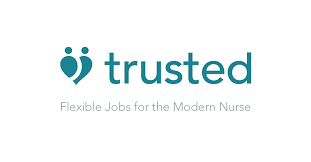Mastering the Art of Medical Tourism Planning: A Comprehensive Guide
Medical Tourism Planning: A Comprehensive Guide
Medical tourism has become a popular option for individuals seeking high-quality healthcare services at affordable prices in different parts of the world. Planning a medical trip requires careful consideration and thorough research to ensure a smooth and successful experience. Here are some essential steps to help you plan your medical tourism journey:
Research and Choose the Right Destination
Start by researching potential destinations known for their excellent healthcare facilities and specialists in your required medical field. Consider factors such as reputation, accreditation, language proficiency, and travel convenience when selecting a destination.
Select a Reputable Healthcare Provider
Once you have chosen a destination, research and select a reputable healthcare provider or hospital that specializes in the treatment you require. Look for certifications, patient reviews, success rates, and the expertise of healthcare professionals.
Consultation and Treatment Planning
Contact the chosen healthcare provider to schedule a consultation to discuss your medical condition, treatment options, costs involved, and expected outcomes. Work closely with the medical team to create a personalized treatment plan tailored to your specific needs.
Travel Arrangements
Coordinate your travel arrangements, including flights, accommodation, transportation, and visa requirements well in advance of your scheduled treatment date. Ensure that all necessary documents are in order for a hassle-free journey.
Financial Planning
Evaluate the total cost of your medical treatment, including procedure fees, accommodation, travel expenses, post-operative care, and any unforeseen costs. Consider insurance coverage options or medical financing to manage expenses effectively.
Aftercare and Follow-Up
Prioritize aftercare arrangements by discussing post-treatment care instructions with your healthcare provider. Plan for follow-up appointments or remote consultations to monitor your recovery progress once you return home.
Cultural Sensitivity and Adaptation
Familiarize yourself with the cultural norms and practices of the destination country to ensure respectful interactions with local communities during your stay. Embrace cultural differences as part of your holistic healing experience.
In conclusion, thorough planning is key to a successful medical tourism journey that combines quality healthcare with travel experiences. By following these steps and seeking guidance from experienced professionals in the field of medical tourism, you can embark on a transformative health journey with confidence and peace of mind.
8 Benefits of Medical Tourism: Quality Care, Cost Savings, and Cultural Exploration
- Access to high-quality medical treatments not available locally
- Cost-effective healthcare options compared to domestic services
- Opportunity to combine medical procedures with travel and tourism
- Reduced waiting times for consultations, surgeries, and treatments
- Access to specialized medical expertise and cutting-edge technology
- Personalized care and attention from healthcare professionals
- Ability to explore different cultures and destinations while receiving treatment
- Potential for privacy and confidentiality in a foreign healthcare setting
Challenges in Medical Tourism: Navigating Language Barriers, Healthcare Standards, Legal Limitations, and Travel Stress
- Language barriers may hinder effective communication with healthcare providers.
- Different healthcare standards and regulations in foreign countries may lead to unexpected challenges.
- Limited access to legal recourse or medical malpractice laws in some destinations.
- Travel-related stress and jet lag can impact recovery post-treatment.
Access to high-quality medical treatments not available locally
Medical tourism planning offers the significant advantage of providing access to high-quality medical treatments that may not be readily available locally. By exploring healthcare options in different countries, individuals can access cutting-edge procedures, specialized treatments, and renowned medical experts that may not be accessible in their home region. This aspect of medical tourism planning opens up a world of possibilities for patients seeking advanced healthcare solutions beyond the limitations of their local healthcare system, ultimately improving their chances of receiving optimal care and achieving positive health outcomes.
Cost-effective healthcare options compared to domestic services
One significant advantage of medical tourism planning is the cost-effectiveness it offers compared to domestic healthcare services. By traveling to countries where medical treatments are more affordable, individuals can access high-quality care at a fraction of the cost they would incur in their home country. This financial benefit allows patients to undergo necessary medical procedures without compromising on the quality of care received, making healthcare more accessible and affordable for those seeking treatment abroad.
Opportunity to combine medical procedures with travel and tourism
One significant advantage of medical tourism planning is the opportunity to combine necessary medical procedures with travel and tourism experiences. This unique benefit allows individuals to not only address their healthcare needs but also explore new destinations, cultures, and attractions. By integrating medical treatments with leisure activities, patients can turn their recovery journey into a rewarding and enriching travel experience. This dual-purpose approach not only promotes physical well-being but also rejuvenates the mind and spirit, creating a holistic healing experience that transcends traditional healthcare settings.
Reduced waiting times for consultations, surgeries, and treatments
One significant advantage of medical tourism planning is the reduction in waiting times for consultations, surgeries, and treatments. In many countries, healthcare systems may be burdened with long waiting lists due to high demand and limited resources. By opting for medical tourism, individuals can access timely medical care abroad, bypassing lengthy wait times and receiving prompt attention from healthcare providers. This not only accelerates the diagnosis and treatment process but also contributes to better health outcomes by addressing medical issues in a more efficient and timely manner.
Access to specialized medical expertise and cutting-edge technology
Medical tourism planning offers a significant advantage in providing access to specialized medical expertise and cutting-edge technology that may not be readily available in one’s home country. By seeking treatment abroad, patients can benefit from the skills of renowned specialists and the latest advancements in medical technology, ensuring optimal care and innovative treatment options tailored to their specific needs. This pro of medical tourism planning opens up opportunities for individuals to receive top-tier healthcare services that may lead to improved health outcomes and a higher quality of life.
Personalized care and attention from healthcare professionals
One significant advantage of medical tourism planning is the opportunity to receive personalized care and attention from healthcare professionals. By choosing reputable healthcare providers in top destinations, patients can benefit from individualized treatment plans tailored to their specific needs and preferences. The focus on personalized care ensures that patients receive dedicated attention from experienced medical professionals who prioritize their well-being throughout the entire treatment process. This level of personalized care enhances the overall patient experience, leading to improved outcomes and a sense of comfort and support during a potentially challenging time.
Ability to explore different cultures and destinations while receiving treatment
One significant advantage of medical tourism planning is the opportunity to explore diverse cultures and destinations while undergoing treatment. This unique aspect allows individuals to immerse themselves in new environments, experience different traditions, and engage with local communities, enhancing their overall healing journey. By combining medical care with travel experiences, patients can gain a broader perspective of the world, fostering personal growth and creating lasting memories beyond their healthcare needs.
Potential for privacy and confidentiality in a foreign healthcare setting
One significant advantage of medical tourism planning is the potential for enhanced privacy and confidentiality in a foreign healthcare setting. Patients seeking medical treatment abroad can benefit from a level of anonymity that may not be achievable in their home country. Foreign healthcare facilities often prioritize patient confidentiality and provide discreet services, allowing individuals to maintain their privacy throughout the treatment process. This added layer of confidentiality can offer peace of mind to patients seeking sensitive medical procedures or those who value discretion in their healthcare experiences.
Language barriers may hinder effective communication with healthcare providers.
One significant drawback of medical tourism planning is the potential language barriers that can impede effective communication between patients and healthcare providers. Misunderstandings or misinterpretations due to language differences may lead to confusion, errors in treatment, or inadequate post-operative care. Patients may struggle to express their symptoms accurately or comprehend medical instructions, impacting the overall quality of care and patient outcomes. Overcoming language barriers through interpreter services or selecting healthcare facilities with multilingual staff is essential to ensure clear communication and optimal healthcare delivery in medical tourism scenarios.
Different healthcare standards and regulations in foreign countries may lead to unexpected challenges.
One significant con of medical tourism planning is the varying healthcare standards and regulations in foreign countries, which can present unexpected challenges for patients seeking treatment abroad. Differences in medical practices, quality control measures, and regulatory oversight may result in disparities in care that could impact the overall treatment outcome. Patients may face difficulties navigating unfamiliar healthcare systems and ensuring that their rights and safety are upheld according to international standards. It is crucial for individuals considering medical tourism to thoroughly research and understand the healthcare landscape of their chosen destination to mitigate potential risks and ensure a successful treatment experience.
Limited access to legal recourse or medical malpractice laws in some destinations.
One significant con of medical tourism planning is the limited access to legal recourse or medical malpractice laws in some destinations. Patients who undergo medical treatments abroad may face challenges in seeking legal redress in case of medical negligence or malpractice. The lack of robust legal frameworks or enforcement mechanisms in certain countries can leave patients vulnerable to potential risks and uncertainties regarding their rights and avenues for compensation. This limitation underscores the importance of thorough research and due diligence when selecting a healthcare provider and destination for medical tourism to mitigate the risks associated with inadequate legal protection.
Travel-related stress and jet lag can impact recovery post-treatment.
One significant con of medical tourism planning is the potential impact of travel-related stress and jet lag on the recovery process post-treatment. Traveling long distances to receive medical care in a foreign country can lead to physical and mental fatigue, disrupting the body’s natural healing mechanisms. Jet lag, resulting from crossing multiple time zones, can further exacerbate the situation by causing sleep disturbances and general discomfort. These factors may hinder the patient’s ability to rest and recuperate effectively, potentially prolonging the recovery period and affecting the overall treatment outcome. It is essential for individuals considering medical tourism to carefully consider these challenges and take proactive measures to minimize their impact on post-treatment recovery.



